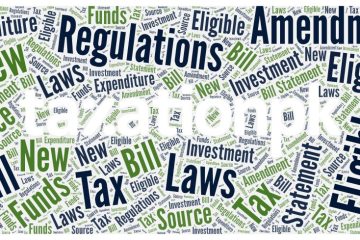Taxation is an essential part of any government’s revenue stream. In Pakistan, taxes are used to fund a wide range of government services, including education, healthcare, infrastructure, and security. However, in recent years, there has been growing concern about the lack of accountability in the Pakistani tax system. This is due in part to the fact that the tax system is complex and difficult to understand, and in part to the fact that there is a lack of transparency and oversight in the tax administration.
The lack of accountability in the Pakistani tax system has a number of negative consequences. First, it leads to a loss of revenue for the government. When taxpayers do not believe that their taxes are being used effectively, they are less likely to pay their taxes. This can lead to a vicious cycle, as the government is then forced to cut back on essential services, which further erodes public trust in the tax system.
Second, the lack of accountability in the Pakistani tax system can lead to corruption. When there is no transparency and oversight, it is easier for government officials to abuse their power and use their positions for personal gain. This can have a devastating impact on the economy, as it undermines the rule of law and discourages investment.
Third, the lack of accountability in the Pakistani tax system can lead to social unrest. When people feel that they are not being treated fairly by the government, they are more likely to become dissatisfied and resentful. This can lead to protests, strikes, and even violence.
In order to address the problem of accountability in the Pakistani tax system, there are a number of reforms that need to be implemented. First, the tax system needs to be simplified and made more transparent. This will make it easier for taxpayers to understand their tax obligations and to comply with the law. Second, the tax administration needs to be strengthened. This means increasing the number of tax inspectors and auditors, and providing them with the resources they need to do their jobs effectively. Third, there needs to be greater transparency and oversight of the tax administration. This means publishing more information about tax revenues and expenditures, and allowing for greater public scrutiny of the tax system.
By implementing these reforms, the Pakistani government can help to improve the accountability of the tax system and ensure that taxes are used effectively to benefit the people of Pakistan.
Here are some additional benefits of accountability in taxation in Pakistan:
- Increased tax revenue: When taxpayers believe that their taxes are being used effectively, they are more likely to pay their taxes. This can lead to increased tax revenue for the government.
- Improved economic growth: Increased tax revenue can be used to fund government investments in infrastructure, education, and healthcare. These investments can lead to improved economic growth.
- Reduced corruption: When there is accountability in the tax system, it is more difficult for government officials to abuse their power and use their positions for personal gain. This can lead to reduced corruption.
- Improved social stability: When people feel that they are being treated fairly by the government, they are more likely to be satisfied and content. This can lead to improved social stability.
Overall, accountability in taxation is essential for a healthy and prosperous economy. By implementing the reforms outlined above, the Pakistani government can help to improve the accountability of the tax system and ensure that taxes are used effectively to benefit the people of Pakistan.
How to Improve Accountability in Pakistan’s Tax System
There are a number of things that the Pakistani government can do to improve accountability in the tax system. These include:
- Simplifying the tax system: The current tax system is complex and difficult to understand. This makes it difficult for taxpayers to comply with the law and for tax officials to enforce it. The government should simplify the tax system by reducing the number of taxes and simplifying the tax rates.
- Making the tax system more transparent: The current tax system is opaque. This makes it difficult for taxpayers to know what their tax obligations are and for tax officials to track tax revenues. The government should make the tax system more transparent by publishing more information about tax laws and regulations.
- Strengthening the tax administration: The current tax administration is weak. This makes it difficult for tax officials to collect taxes and enforce tax laws. The government should strengthen the tax administration by increasing the number of tax inspectors and auditors, and by providing them with the resources they need to do their jobs effectively.
- Enhancing public awareness: Many taxpayers are unaware of their tax obligations. The government should enhance public awareness of the tax system by educating taxpayers about their rights and responsibilities.
By taking these steps, the Pakistani government can help to improve accountability in the tax system and ensure that taxes are used effectively to benefit the people of Pakistan.






